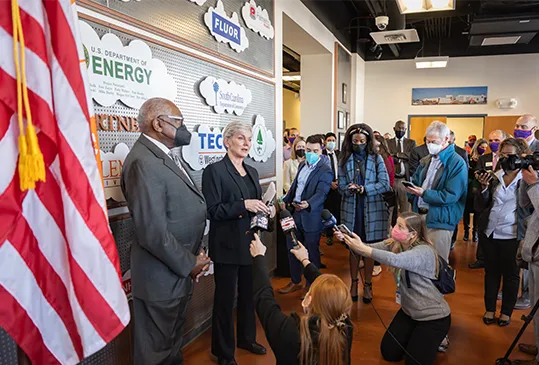ENGINEERING THE FUTURE OF DISASTER RESPONSE
Graduate automotive engineering students developed Deep Orange 16 in response to the real-world challenges faced during Hurricane Helene. The vehicle can maneuver autonomously, deliver emergency supplies, transport injured passengers to safety and more.
Explore Deep Orange 16’s mission-driven design
"Deep Orange pushes us to think like real-world engineers. We are not just learning theory but solving complex, high-stakes problems that prepare us to lead in the industry from day one."
Rohit Godse,automotive engineering M ’25 and Deep Orange 16 project lead
Clemson Research by the Numbers
Innovation Clusters
Clemson’s innovation clusters represent the primary areas where the University has a rich history of expertise and new research opportunities designed to benefit our state and country.
- Advanced Materials
- Cyberinfrastructure and Big Data Science
- Energy, Transportation and Advanced Manufacturing
- Health Innovation
- Human Resilience
- Sustainable Environment


Industry Partners
Clemson University faculty, staff and students provide expertise, state-of-the-art research facilities and the determined spirit required to create innovative answers for today’s industries.
Corporate Partnerships and Strategic Initiatives
Faculty Research Support
Clemson attracts and retains leading researchers by remaining committed to allocating funds, personnel and exclusive opportunities for researchers. Discover the programs and initiatives that provide Clemson researchers with grants, major research equipment and more.
Review Clemson’s Research Initiatives Division of Research


